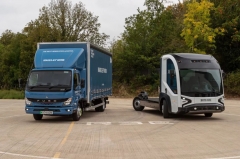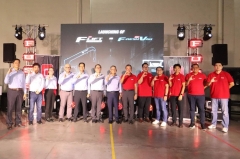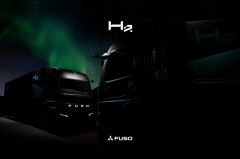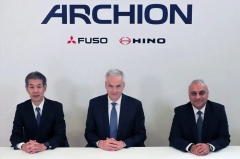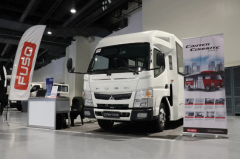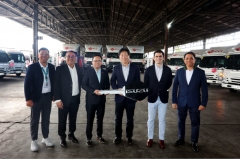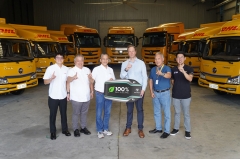
Mitsubishi Fuso Truck and Bus Corporation recently announced that their two main production plants in Japan, the Kawasaki Plant, and Nakatsu Plant have fully shifted their electrical supply to renewable energy from October last year.
This move is one of many that MFTBC will make in its journey toward carbon-neutral production. Their first venture into bringing sustainability within the truck sector is through the “eCanter”, the very first mass-produced electric light-duty truck in Japan. We will also be seeing the future of Fuso’s product line-up as they aim to launch their next generation of products in the spring of this year, as part of Fuso’s effort to transition their product portfolio to locally CO2-neutral offerings by 2039. In addition to this, MFTBC is working towards a goal of achieving carbon neutrality in its production sites by the year 2039.

So far, two of MFTBC’s biggest production plants have achieved the goal of utilizing renewable energy in production, the Kawasaki Plant which manufactures trucks and industrial engines, and the Nakatsu Plant which produces vehicle components have reached their goal of 20 percent reduction in carbon emissions from their emission rates back in 2015.
In order to achieve their goal of carbon-neutral production, the electricity contracts of the Kawasaki Plant and Nakatsu Plant have opted for a plan that includes RE100-compliant (Renewable 100 percent) FIT (Feed-in-Tariff) non-fossil energy certificates. Hence, MFTBC has achieved neutrality in carbon emissions from electricity sources for both plants. RE100 is a global renewable energy initiative whose goal is to promote renewable energy in major businesses in different sectors around the world. On the other hand, a FIT non-fossil certificate is a certification issued to businesses using renewable energy in order to promote renewable energy usage and to track and verify if power sources are compliant with RE100 standards as well as the Carbon Development Project.
Meanwhile, Daimler Truck AG, the parent company of MFTBC has the goal of achieving carbon-neutral production in all their plants and business units worldwide by the year 2039. Daimler's European sites will also be taking a cue from the Kawasaki Plant and Nakatsu Plant by sourcing their power from renewable sources to achieve carbon-neutral production.
As Daimler has set their goals to achieve carbon-neutral production worldwide, we can expect businesses that they operate here in the Philippines to review their energy sources and follow internal energy-saving measures they employ overseas, a massive undertaking for a noble cause.


